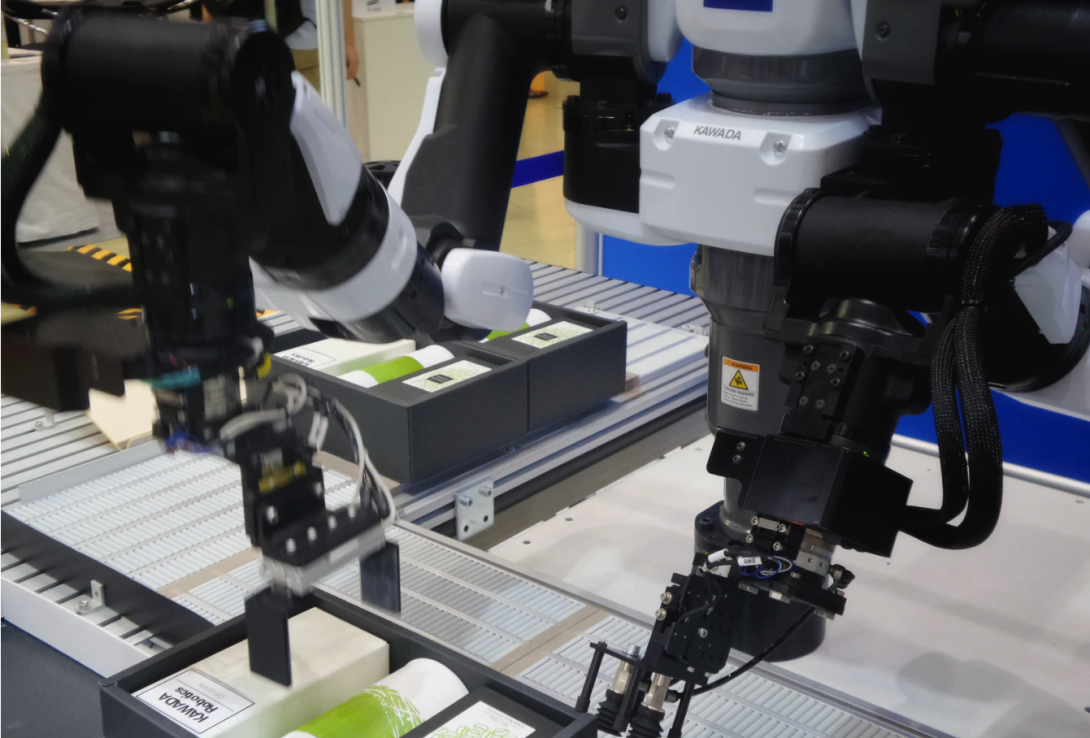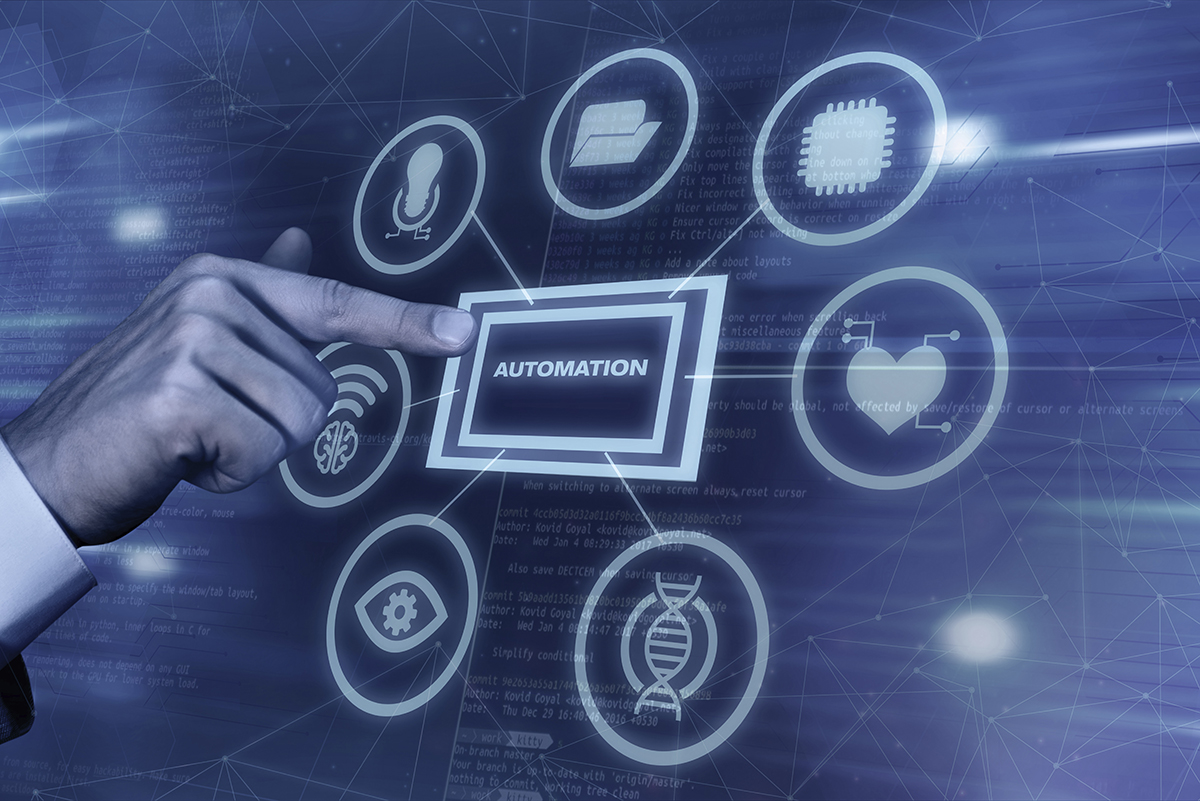Table des matières
TogglePrinciples of Industrial Automation
Industrial automation refers to the use of control systems such as computers or robots to manage different processes and equipment in an industry in order to replace human intervention as much as possible. These systems facilitate more efficient production, increase product quality, and allow for a cost reduction.
The principles of industrial automation rely on several pillars
- Control: Automation relies on continuous monitoring through sensors and measurement instruments. These devices collect real-time data on various aspects of production to ensure the smooth running of processes.
- Programming: The programs used in automation define and coordinate the tasks performed by machines. These programs are often based on algorithmic logic and can be adjusted to optimize performance.
- Robotics: Robots are key components in industrial automation. They perform repetitive tasks with great precision and can operate in environments hazardous to humans.
- Integration: This is the harmonization of various systems and processes to operate together smoothly. This includes the interoperability of different devices and control systems.
- Predictive maintenance: By using artificial intelligence algorithms and data analysis, predictive maintenance allows for the identification and anticipation of failures before they occur, thus avoiding costly production interruptions.
By adopting these principles, industries can benefit from more efficient and reliable production while optimizing their resources. Industrial automation continues to develop, constantly bringing new innovations and perspectives to transform traditional production methods.
Definitions and Key Concepts
Industrial automation encompasses the use of technologies to automate tasks and production processes in factories and industries. Its main objective is to improve operational efficiency, quality, and reliability of products while reducing production costs.
Automation systems are designed to monitor, control, and manage industrial equipment, often in real-time. These systems may include technologies such as sensors, actuators, programmable logic controllers (PLC), human-machine interfaces (HMI), and supervisory software (SCADA).
Among the many advantages of automation are:
- The reduction of human errors
- The consistency and repeatability of production
- Optimization of resources
- Predictive maintenance of equipment
The concept of lean production is often associated with industrial automation. It aims to eliminate waste in production processes, simplify, and enhance efficiency.
Fab Labs and smart contracts are also significant innovations in this field. Fab Labs, or fabrication laboratories, enable on-demand manufacturing and provide the ability to rapidly develop and test prototypes. Smart contracts, on the other hand, can enhance supply chain management by automating and securing transactions and processes between different stakeholders.
Technologies Used in Automation
Industrial automation refers to the use of automatically controlled systems to manage machines and processes in various manufacturing sectors. These systems may include robots, software, and advanced technologies to perform production tasks with minimal human intervention.
The main objectives of industrial automation are to increase operational efficiency, reduce production costs, and improve product quality. By minimizing human errors and optimizing all processes, companies can achieve higher levels of performance and quality.
The technologies used in industrial automation are numerous and varied. Some of the most common include:
- Industrial robots: Used for handling, assembling, and welding tasks.
- Programmable logic controllers (PLC): These devices control industrial processes with high precision.
- SCADA systems: Supervisory Control And Data Acquisition is used for controlling and supervising machines and processes.
- Artificial intelligence (AI): AI algorithms are applied for predictive maintenance and process optimization.
- Wireless sensor networks: These sensors collect and transmit real-time data to monitor operating conditions.
The integration of these technologies enables lean production, maximizing productivity while minimizing waste. Through innovations such as Fab Labs and OPC-UA applications, modern factories can significantly optimize their processes.
Predictive maintenance also plays a key role by allowing companies to prevent failures before they occur, thus improving equipment reliability and reducing downtime.
Finally, the use of smart contracts in supply chain management ensures greater transparency and improved traceability of products, thereby increasing overall customer satisfaction.
Applications and Impacts of Automation

Industrial automation is a process in which control systems such as computers, robots, or information technologies manage different equipment and industrial processes. This automation allows for performing repetitive, dangerous, or precision-demanding tasks while improving productivity and reducing the risk of human errors.
Industrial automation finds varied applications across numerous sectors. For instance, in the manufacturing field, automated assembly lines enable large-scale production while maintaining high-quality standards. Robots are also employed for specific tasks such as welding, painting, and assembly.
In the logistics sector, automation is crucial for optimizing warehouse management systems with technologies such as AGVs (Automated Guided Vehicles) and automated sorting systems. This not only reduces operational costs but also ensures maximum operational efficiency.
The food industry also benefits from automation through automated production lines, improving both speed and food safety. Sorting machines, cutting robots, and automated packaging systems are concrete examples of this application.
- Monitoring and predictive maintenance
- Process optimization using AI and machine learning algorithms
- Reduction of labor costs
- Increase in precision and reliability of operations
In terms of impact, industrial automation contributes to continuous improvement of processes and product quality. The implementation of technologies such as the Internet of Things (IoT) enables better data collection and real-time analysis, facilitating decision-making and immediate adjustments. Moreover, smart contracts play an essential role in managing the supply chain, ensuring the transparency and traceability of transactions.
Application Sectors
Industrial automation refers to the use of state-of-the-art technologies to control and monitor production processes while minimizing human intervention. Utilizing robots, programmable control systems, and advanced software, automation aims to enhance efficiency, quality, and safety in production environments.
In industry, the applications of automation are vast and varied. It plays a crucial role in manufacturing, where it is used for assemblies, inspections, and packaging. Programmable logic controllers and SCADA systems allow for remote monitoring and control of operations. Additionally, automation systems favor predictive maintenance, thereby reducing unexpected production stoppages.
The impacts of automation are significant. By increasing productivity, they lower production costs and improve delivery times. The enhancement of precision and consistency through machines minimizes human errors. Furthermore, automation enables better utilization of resources, thus reducing waste.
The application sectors of industrial automation are numerous:
- Automotive: Vehicle assembly, automated painting, and supply chain management.
- Pharmaceutical: Drug manufacturing, packaging, and quality inspection.
- Food: Processing of food products, packaging, and quality control.
- Electronics: Manufacturing of components and printed circuits.
- Logistics: Management of warehouses and sorting and distribution systems.
Each sector benefits from technological advances in automation to improve its processes, ensure the quality of its products, and optimize its costs.
Consequences for Employment and Production
Industrial automation refers to the use of various technologies to perform production processes with minimal human intervention. This transformation relies on the integration of systems such as robots, computer-controlled machine tools, and process control systems.
The main objectives are to maximize operational efficiency, reduce human errors, and increase production. Automation is often associated with concepts like Industry 4.0, where machines and systems communicate with each other to optimize the entire production chain.
Applications of automation can be found in various industrial sectors such as automotive, aerospace, and electronics. Automated systems manage tasks ranging from assembly and welding to painting and quality inspection.
- Robotic assembly: Improvement of precision and reduction of errors.
- Automated quality control: Real-time defect detection using sensors and cameras.
- Autonomous transport systems: Optimization of internal logistics and production flows.
The impact of automation goes beyond mere reduction of production costs. It allows for better traceability of products, an increase in flexibility in the manufacturing process, and facilitates mass customization.
The impact of automation on employment is a topic of debate. While some repetitive and dangerous tasks are taken over by machines, jobs requiring more creativity, problem-solving, and system management are becoming increasingly important.
Positions in the fields of maintenance and programming of automated systems are in high demand. Skills in artificial intelligence and data analytics are also becoming crucial to leverage the benefits of automation.
In terms of production, automation allows for a significant increase in production volume while improving product quality. The ability to maintain constant production without pauses associated with human interventions reduces downtime. Predictive maintenance enables problems to be anticipated and resolved before they interrupt production.





